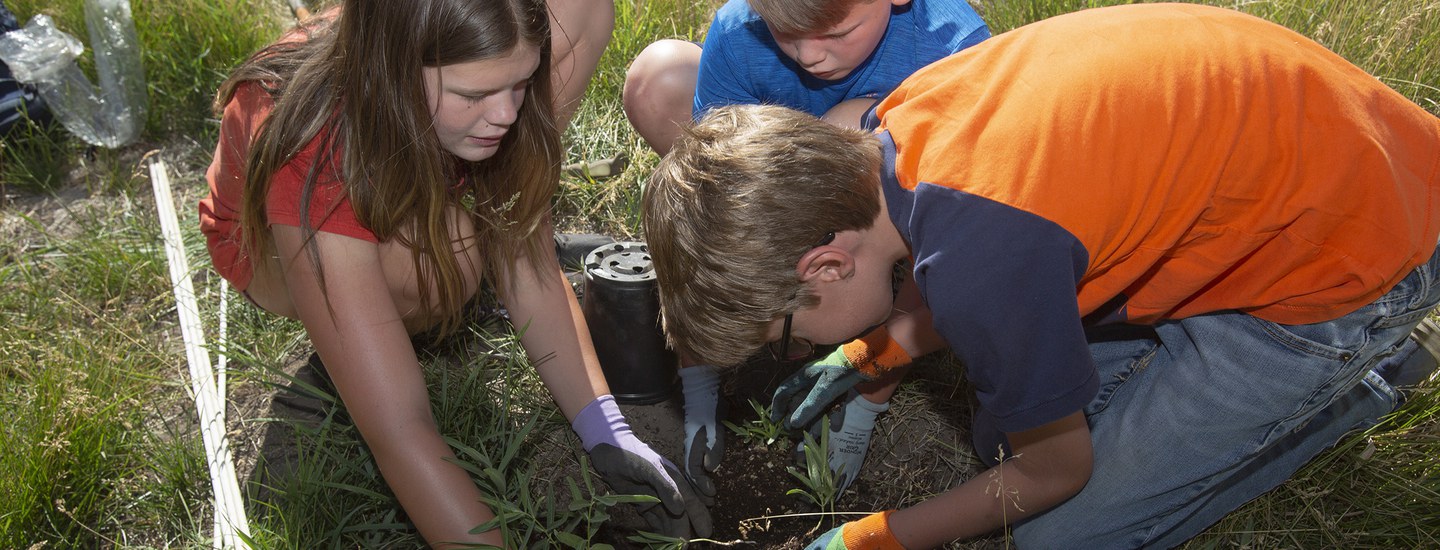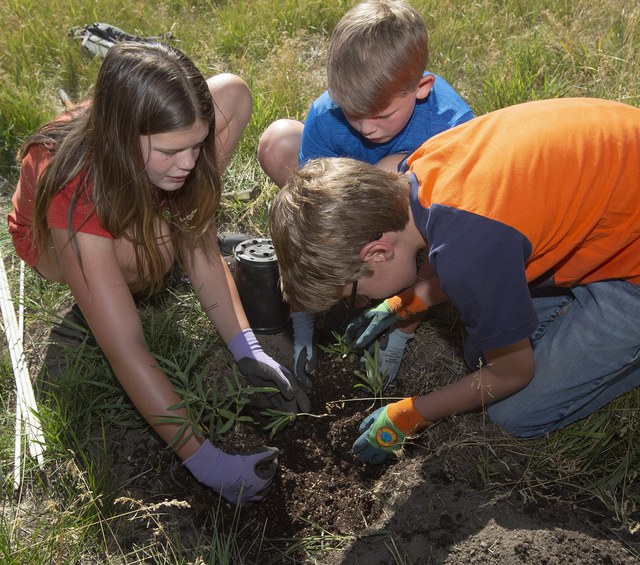For many years, Land Trust staff have incorporated climate change into our conservation and stewardship planning. However, this past year the Land Trust devoted time to researching and creating a comprehensive climate change strategy to help guide our work in Central Oregon. Why? It’s pretty simple: climate change threatens the Land Trust’s core mission of protecting land for wildlife, scenic views, and local communities for future generations.
Impacts in Central Oregon: Climate change is affecting natural systems across Central Oregon. We are seeing more wildfires that are larger in size. Increased temperatures are and will cause more tree disease outbreaks and bark beetle infestations. Central Oregon will see less snowfall, more rainfall, and increased flooding caused by rain-on-snow events. Species—both plants and animals—will relocate and search for more suitable habitats. By 2080, models predict that the entire Deschutes River system will be rain-dominant, not snow-dominant like the centuries before. These changes in precipitation will impact our streams and rivers, including reducing habitat quality for fish and reducing the amount of groundwater that comes from our mountains. Learn more about the impacts of climate change on the communities we love and the places we love.
While the prospect of climate change is daunting, we can reduce its impacts on Central Oregon. As a conservation organization, the Land Trust can substantially contribute to mitigating some of the effects of climate change on local natural areas, and can help facilitate the ability of fish and wildlife to adapt to altered landscapes. So, how are we helping mitigate and adapt to climate change?
- By conserving land: Yes, our core work is helping combat climate change! We prioritize the conservation of lands that best support plant and animal diversity and can adapt to the effects of climate change. Land conservation helps keep our forests, rivers, and streams from being converted to other uses. This, in turn, allows natural processes to take place which help absorb CO2 emissions, reduce air temperatures, and store water. Land conservation also helps connect habitats and migration routes which will be critical for wildlife as they move across the landscape in response to changes in climate. Learn more about how the Land Trust can mitigate the effects of climate change.
- By caring for land: Climate-responsive stewardship is the natural counterpart to climate-responsive land conservation. Effective stewardship can help mitigate climate change and potentially help facilitate adaptation for natural systems. As we care for our lands, we prioritize the functionality of natural processes and systems rather than specific habitats or species. This means we strive to improve or create healthy connected habitats—whether it is a restored creek with wetlands and meadows or a restored forest with natural fire cycles. These healthy, natural processes and systems will give plants and animals the help they need to respond and adapt as the climate continues to change. Learn more about how the Land Trust can help natural areas be stronger in the face of climate change.
- By engaging the community in climate change: Whether we like it or not, climate change will impact all of our lives—human and wild. The Land Trust strives to be an accurate source of relevant information on how climate change is affecting us and what we can all do to lessen its impacts. Learn more about how you can help solve climate change!
The good news is that YOU are already making a difference in our climate-changed future by supporting your Land Trust. Together we can build a bright future for Central Oregon and we look forward to keeping you apprised of our progress.
Learn more:
- What is climate change?
- How is climate change affecting Central Oregon?
- What's the Land Trust's approach to climate change?
- How can I help reduce the impacts of climate change?


